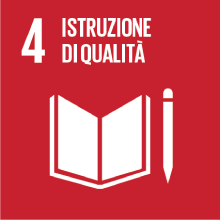18TH CENTURY STUDIES
- Anno accademico
- 2022/2023 Programmi anni precedenti
- Titolo corso in inglese
- 18TH CENTURY STUDIES
- Codice insegnamento
- LMJ370 (AF:391827 AR:208366)
- Lingua di insegnamento
- Inglese
- Modalità
- In presenza
- Crediti formativi universitari
- 12
- Livello laurea
- Laurea magistrale (DM270)
- Settore scientifico disciplinare
- L-LIN/10
- Periodo
- I Semestre
- Anno corso
- 1
- Sede
- VENEZIA
- Spazio Moodle
- Link allo spazio del corso
Inquadramento dell'insegnamento nel percorso del corso di studio
1) to increase the knowledge and comprehension of English literature at higher (M.A.) level, through the study of its development in the eighteenth century;
2) to acquire a better command of theoretical approaches, hermeneutical tools for textual analysis and close reading; along with acquiring the competence to contextualise them in the historical and literary background;
3) to be able to comprehend English culture (specifically in the eighteenth century) through a better understanding of its relevant texts and documents. Students will learn the history of English literature both from a cultural and an aesthetic viewpoint, as well as in its relation with the political and social history of England and Great Britain. They will apply their hermeneutic abilities to the comprehension of complex literary texts, their relation with the cultural and socio-political background, their rhetorical strategies and aesthetic qualities. They will be able to produce a discussion of complex texts and connect them to the historical framework to which they belong.
The module will be taught entirely in English.
Risultati di apprendimento attesi
1) to provide a detailed analysis of literary texts, and related texts;
2) to enter a dialogue with the critical state of art on texts and themes, and debate one's positions in public;
3) to work within various intercultural contexts;
4) to provide critical commentaries, and short essays in English, using the critical-hermeneutical knowledge acquired in the module, also through a personal reading of texts;
5) to conduct an autonomous bibliographic search in English.
In the Joint Degree / Double Degree course the acquired competence with be implemented in an interaction with the students, and in the contexts, of the universities participating in the consortium.
Prerequisiti
Students are expected to acquire a general knowledge of history and cultural history in the long eighteenth century prior to the start of the module (see "Testi di riferimento/Readings": C. Background)
A very good command of the English language (C1) will be needed in order to understand, and comment on, the texts.
Contenuti
The course will provide an overview on the treatment of happiness and unhappiness in the eighteenth century. The search for happiness was one of the most important issues and themes of eighteenth-century thought. Happiness ceased to be the mere object of theological or philosophical inquiry and became a central tenet in the practical life of all eighteenth-century people, from the humblest to the highest members of the social ranks. For instance, happiness became one of the keywords of the American Declaration of Independence, the first modern national constitution, which said that "all men are created equal, that they are endowed by their Creator with certain unalienable Rights, that among these are Life, Liberty and the pursuit of Happiness". Writers too were concerned with the people's pursuit of happiness, and their characters became increasingly observed in their capacity (or inability) to obtain happiness on earth. Conversely, the century saw an increased interest in finding the reasons why man is unhappy. Writers and thinkers progressively shaped a culture of melancholy and dejection that would have its peak in the pre-Romantic and Romantic age. The course will see how writers treated the themes of the search for happiness and the difficulty of achieving it through the analysis of works both in prose and in poetry.
Testi di riferimento
All students are asked to read the following works entire:
1. Samuel Johnson, "The History of Rasselas, Prince of Abissinia" (ed. by T. Keymer, Oxford Classics, or ed. by P. Goring, Penguin)
2. Sarah Fielding, "The Adventures of David Simple, and Volume the Last" (ed. by P. Sabor, The Kentucky University Press; paperback or kindle edition; see also the moodle of the course)
3. Henry Mackenzie, "The Man of Feeling" (ed. by B. Vickers, Oxford Classics)
4. excerpts from treatises, essays and sermons will be uploaded on the moodle of the course
(optional reading; not obligatory)*
5. Anne Finch, "The Spleen" (poem online: http://virginia-anthology.org/anne-finch-the-spleen-2/?print=print )
6. William Cowper, "The Castaway" (poem online: https://www.poetryfoundation.org/poems/44027/the-castaway )
B. Critical studies on the cultural context of eighteenth-century happiness:
1. R. Porter, "Enlightenment: Britain and the Creation of the Modern World" (Penguin, 2000), chapter 11 ("Happiness"), pp. 258-75; BALI library EX4 POR.R/Enl
2. D. McMahon, "The Pursuit of Happiness: A History from the Greeks to the Present" (Penguin, 2007): chapters 3 and 4, pp. 140-267
(optional, non compulsory reading: A. Ingram et alii, "Melancholy Experience in Literature of the Long Eighteenth Century: Before Depression, 1660–1800" (Palgrave Macmillan, 2011): chapters 2 and 3 ( ‘Strange Contrarys’: Figures of Melancholy in Eighteenth-Century Poetry" (pp. 83-113); BALI library EX4 ING/Mel)*
(* ask the teacher if you're interested in reading those two poems and the relative chapters)
C. Background
Students are asked to familiarise with the general context of the eighteenth century, and read:
Paul Goring, "Eighteenth-Century Literature and Culture" (Continuum, 2008), BALI library EX4 Gor/Eig
D: D: critical readings on the three novels in the programme - mandatory *only for non-attending students*:
- R. Freiburg, " 'The Multiplicity of Agreeable Consciousness': Samuel Johnson's Sceptical Philosophy of Terrestrial Happiness", 'English Literature: Theories, Interpretations, Contexts', 2-1 (2015), pp. 43-68 DOI: 10.14277/2420-823X/EL-2-1-15-14p
- G.A. Baker, " 'David Simple': The Novel of Sensibility in Embryo", 'Modern Language Studies', 12-2 (1982), pp. 69-80 Jstor: https://www.jstor.org/stable/3194477?seq=1
- M. Harkin, " Mackenzie's Man of Feeling: Embalming Sensibility", 'ELH: English Literary History', 61-2 (1994), pp. 317-340 Jstor: https://www.jstor.org/stable/2873271?seq=1
Modalità di verifica dell'apprendimento
The test will be made of questions with open answers and will be divided into three parts:
A. General themes and topics: history of 18th-century literature and culture, general aspects of the course taught in the module, general background as in the critical books (see "Texts" sections B and C) (Aim 1)
B. A short essay (one sheet long) based on one of the literary texts discussed in class (see "Texts" section A) (Aim 2)
C. A commentary (one sheet long) on a passage selected from one of the texts in the programme (see "Texts" section A), meant to discuss the rhetorical (as well as poetic, narrative, etc.) strategies, the themes, the connections to the historical background in the text (Aim 3)
Students will be allowed to use a monolingual English dictionary only. The use of smartphones, tablets and other devices will be forbidden during the exam.
Time allowed: 2 hours
Modalità di esame
Metodi didattici
Altre informazioni
701 students will find materials on the moodle of the module. They are asked to contact the teacher as early as possible.
Obiettivi Agenda 2030 per lo sviluppo sostenibile
Questo insegnamento tratta argomenti connessi alla macroarea "Capitale umano, salute, educazione" e concorre alla realizzazione dei relativi obiettivi ONU dell'Agenda 2030 per lo Sviluppo Sostenibile


